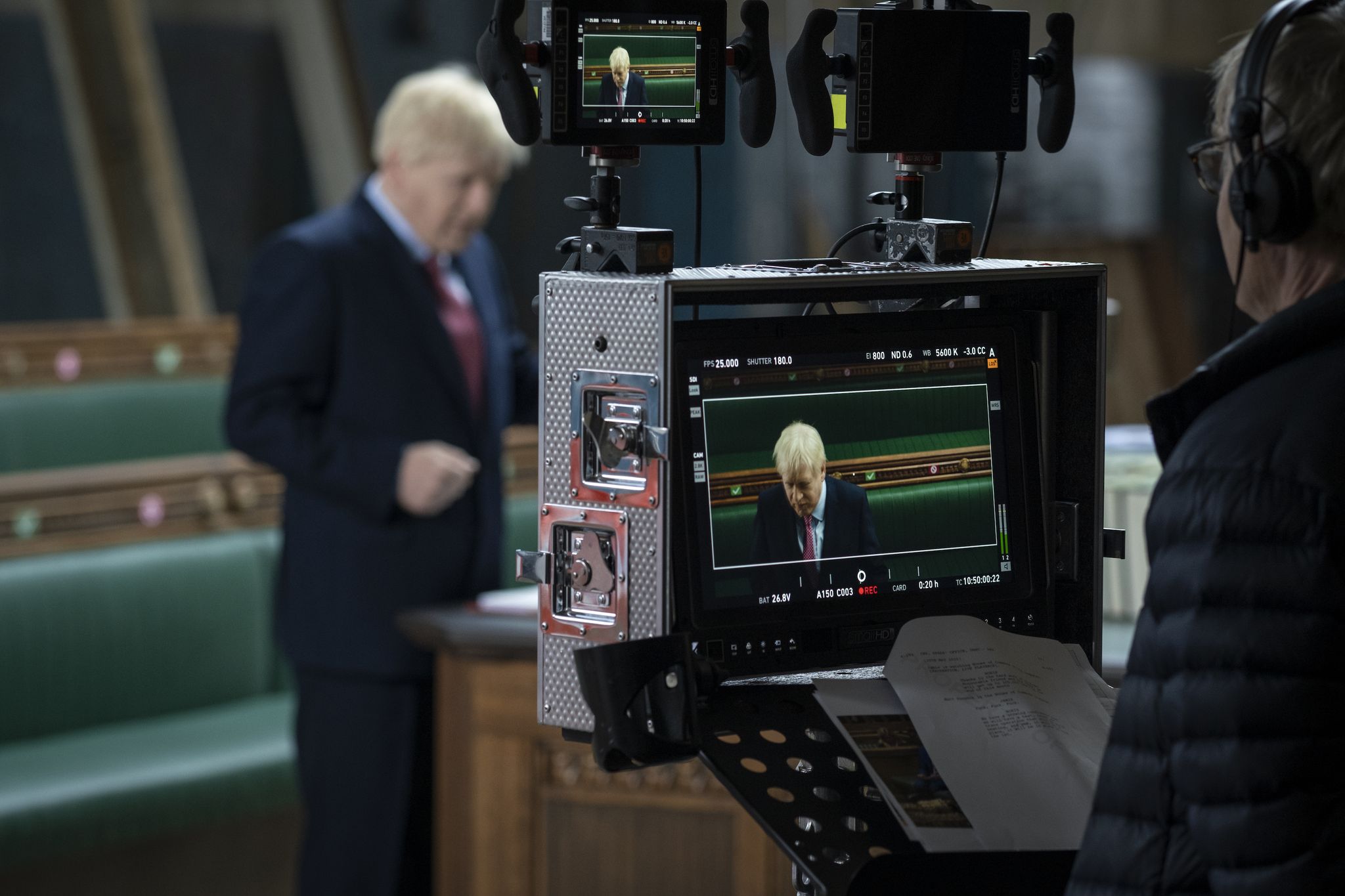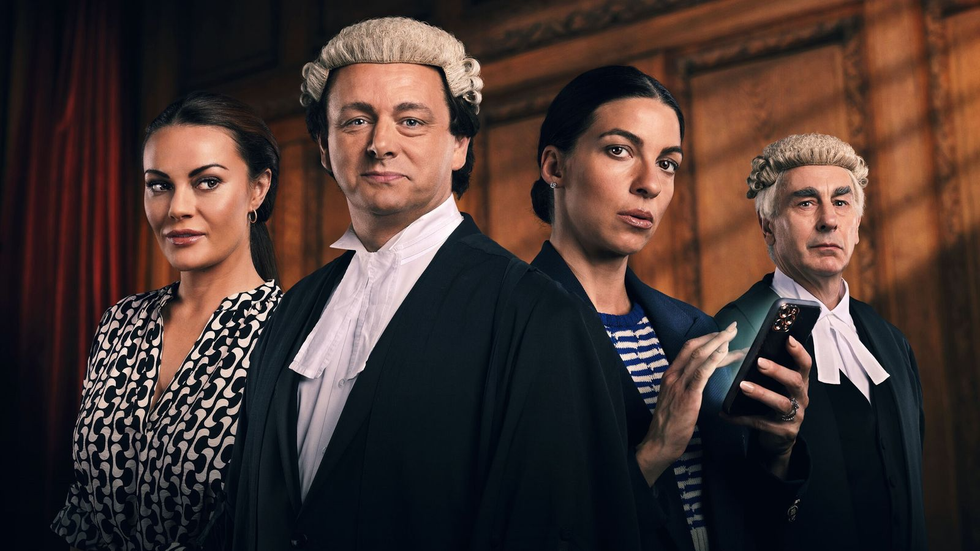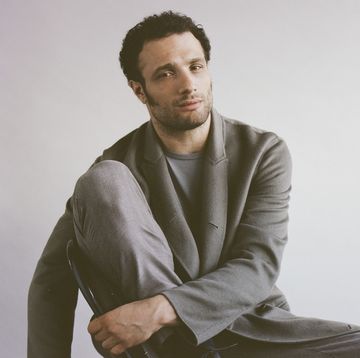In November 2019, a senior royal sat down for an interview which would make even the most hardened job applicant sweat. In a 49-minute conversation with journalist Emily Maitlis, Prince Andrew dug himself a grave over his links to convicted sex offender Jeffrey Epstein. Months later, the prince stepped down from all public roles. You may remember it. That episode of Newsnight was barely three years ago. And now, thanks to Netflix, you will be able to relive it: the platform has just announced a film based on the Newsnight bombshell and the behind-the-scenes manoeuvring that made it possible. Are you still watching, Netflix asks, as you loll on your sofa, barely conscious as to what’s on your screen. It would seem we never stopped.
Scoop, directed by Philip Martin, has promise. Gillian Anderson is playing Maitlis, while Rufus Sewell, not averse to bringing English creeps to life, will be playing the disgraced prince. It is based on a memoir Scoops: Behind the Scenes of the BBC’s Most Shocking Interviews by Newsnight booker Sam McAlister, which has an intriguing premise: McAlister channelled 12 years of explosive interviews into Scoops, including exclusives with Stormy Daniels, Steven Seagal and Julian Assange.
But will Scoop even begin to touch on the drama, the eye-widening experience of watching Prince Andrew discuss the Woking branch of Pizza Express or his inability to sweat? (The Newsnight episode attracted 1.7 million when it was first televised.) It would have to be pretty extraordinary television. There’s clearly a lot of intrigue about the behind-the-scenes drama – exactly how this royal decided that this could be a good idea – and that’s likely the reason for McAlister’s book sales. But a film based on a book based on a journalistic achievement? It’s circular to the point of dizzying: Netflix should change its logo to an ouroboros.
Scoop joins the ranks of many small-screen adaptations about the very, very recent past. This England, Michael Winterbottom’s six-part drama about Boris Johnson’s handling of the coronavirus, was released in October 2022, just over two years from the point we became a nation of social distancing. The last echoes of doorstep saucepan clanging could probably still be heard. Even more whiplash-inducing? Rebekah Vardy and Coleen Rooney’s label case was in session in the spring of 2022; Channel 4’s two-part series, Vardy v Rooney: A Courtroom Drama, followed that December.
Can there really be so few original ideas knocking about? Have there been so many films and television shows about the Tudors, the horrors of world wars, or Princess Diana that we’re already up to the 2020s? Perhaps. But there has to be interest in this from somewhere. You can see the appeal from showrunners. Like superhero franchises and book adaptations, these shows have a built-in familiarity. We remember these events (all too well), and these shows give you something to talk about. If they’re good, they can be water cooler television. But if they’re bad, they whimper away. There’s some relief that Scoop is a film, rather than a multi-part series. Perhaps a tighter structure will give it a sharper focus.
Excitement usually peaks with the casting. Which beloved British actor will be playing less well-loved royal/politician/WAG? There’s a surge of chatter when a on-set photo is released. People discuss whether it’s ethical to make art of real-life strife (on the scale of such things, it’s much easier to justify dramatising a libel suit between warring wives than an interview about widespread sexual abuse). There is always, always discussion about wigs. But this cycle is growing old. It was difficult to summon this level of tempered excitement for This England. There are plenty of public figures who skate the line of despicable but intriguing: people we want to know more about, even if we would never want to sit next to them at a dinner party. Boris Johnson is not one of them. Would it be captivating to see Kenneth Branagh nail a Johnson impression? Or would it be repulsive? That question went unanswered: Branagh’s performance was neither laughable nor searing, just a little dopey.
So it’s a question of quality. Having a fresh take. That requires reflection. Is there a right amount of time to wait before you dramatise real-life events? A little like dating after a break-up, you should probably wait until you learn a few new things (I believe in therapy this is called a “break through”). Otherwise you’re just rebounding. 2016’s The People v. O.J. Simpson waited two decades to take on the story. A follow-up series in that anthology, Impeachment, recounted another ‘90s scandal: Monica Lewinsky and Bill Clinton’s relationship, and subsequent fallout.
Those shows worked because they they were unbelievable – not the events, but how society viewed them at the time. Could the justice system really work like that? Did we really publicly shame a teenager? (Lewinsky consulted heavily with Impeachment). But when you mine events that are still so keenly embedded in the public consciousness, when the lurid details are still an ongoing conversation and the Twitter threads are still fresh, viewers’ reaction is not so much delight (good), outrage (potentially even better), but just an exasperated sigh: this again?
Henry Wong is a senior culture writer at Esquire, working across digital and print. He covers film, television, books, and art for the magazine, and also writes profiles.














